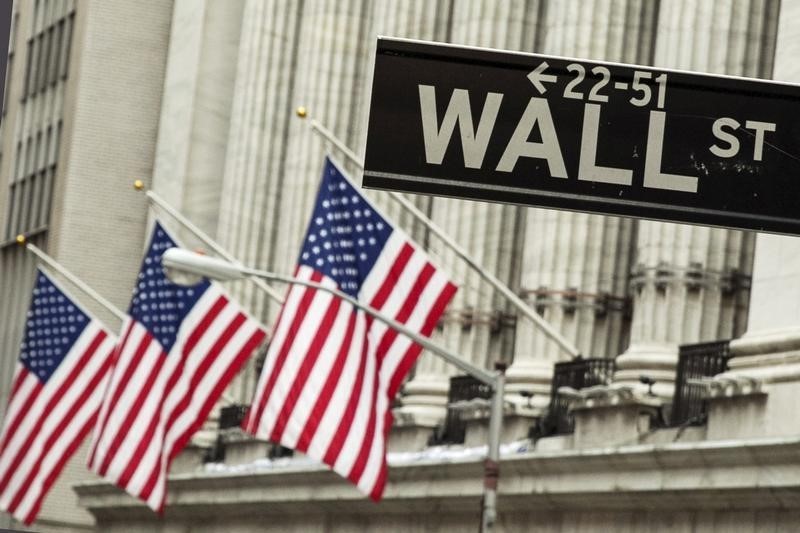By Geoffrey Smith
Investing.com -- U.S. stock markets opened mixed in narrow ranges on Wednesday, as the consolidation that set in after Monday's surge to record highs continued.
Abundant liquidity and an improving economic outlook - underlined by the International Monetary Fund's upward revision of its U.S. growth forecast on Tuesday - are keeping sentiment positive, with only concerns about valuations acting as a restraint. Measured on a price-sales ratio, the S&P 500 is currently over 10% more expensive than it had ever been before the pandemic.
By 9:45 AM ET (1345 GMT), the Dow Jones Industrial Average was up 55 points, or 0.2%, at 33,486 points. The S&P 500 was up 0.1% but the Nasdaq Composite was down 0.1%.
The highlight of the day doesn't come until the second half of the session, with the Federal Reserve releasing the minutes of its last policy meeting at 2 PM ET.
Ahead of that, Robert Kaplan – one of very few top officials at the Fed to see a rate hike as necessary already by the end of next year – told The Wall Street Journal that he’s even more optimistic than the IMF about growth, seeing GDP expansion of 6.5% this year and the jobless rate falling to 4%.
Even so, Kaplan warned that the economy is “not yet out of the woods” and added it’s too soon to talk of withdrawing monetary stimulus. Meanwhile, the sustained strength of consumer demand was underlined by another rise in imports in March which took the U.S. trade deficit to a new record high.
Cruise line stocks were in favor, with Norwegian (NYSE:NCLH) stock rising 5.4% and Carnival (NYSE:CCL) stock rising 6.3% after the latter said that its cash burn in the first quarter was much less than expected. It added that bookings for 2022 are already ahead of its last pre-pandemic year. As with Norwegian, Carnival intends to resume sailings from ports outside the U.S. this summer.
Elsewhere, BlackBerry (NYSE:BB) stock rose 4.6% after the software company said Volvo had chosen its QNX solution to power the software of the 300,000 trucks, buses and construction vehicles that it makes every year.
Among the losers, AstraZeneca (NASDAQ:AZN) ADRs fell 0.4% after the EU's medicines regulator said it had found a possible link to blood clots that have claimed the lives of dozens of patients in the last couple of months. The incidence of the blood clots remains low and the EMA didn't recommend restrictions on its distribution, although various European governments have already taken that step. The U.K. counterpart meanwhile warned under-30s against taking the jab.
Another loser was Li Auto (NASDAQ:LI) stock. The Chinese maker of electric vehicles fell 8.9% after announcing a $750 million bond offering.
